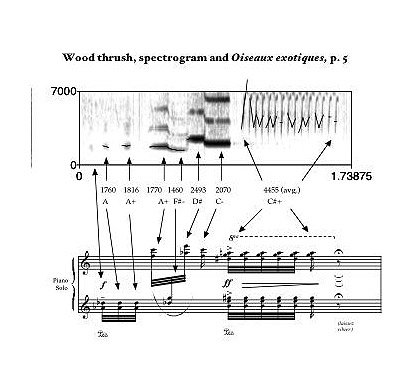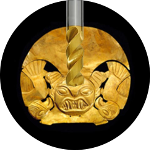Katharsisdrill recomends: Olivier Messiaen: Fête des belles eaux
After World War II a lot of new composers began a new chapter in the European classical music history - or you could argue that the it was the end of this tradition - because the continuation consisted in a complete rejection. Composers like Pierre Boulez, Karlheinz Stockhausen, Iannis Xenakis and György Ligeti all revolted against the very European culture that had created fascism and the horrors that followed - and went on to create whole new methods of constructing music.
But one of the composers they did not oppose was the slightly older Olivier Messiaen. And in his soft, intuitive method there is really nothing you can be angry about. Just see these two short videos of his fascination with bird-song.

The piece that I hope you will hear is called Fête des belles eaux (Festival of Beautiful Waters), and is from 1937. It is one of the earliest experiments with artificial sound. So in a way this is the great-grandfather of electronic music. It is played on six Ondes Martenot, an early electronic organ.
I hope you like it, and if this got you interested in Messiaen you might also be interested in this old post about the Japanese composer Toru Takemitsu.

Really strange how this Ondes Martenot sounds like a theremin. I've never heard of it before. Thanks for sharing :-)
The Theremin and Ondes Martenot have been conceived independently at the same time, during and just after World War I; Theremin starting in 1917 (patented in the USA in 1928) and Ondes Marthenot istarting in 1918 (patented in 1922).
So, it is not surprising that they sound similarly as they are both using the electronic oscillators of the time.
Great, thanks for clarification. I've read that there are different types of Theremins, though. While one is pretty similar to the Ondes, the other uses different sound creation techniques. I love the theremin cause it's actually the only instrument, that you can play without touching it.
I am not an expert, but both instruments are rather old so maybe they use the same principle for the actual sound creation?
It's great))) I've never heard this before)
I'm glad then, to have introduced it to you :) Messiaens wrote also for traditional instruments, but this is especially interesting I think because his curiosity led him to try out these new artificial sounds. Must have been a sensation for a composer to hear these sounds made from electricity in 1937.
It is always very important for a composer to look for something new and discover it in himself)